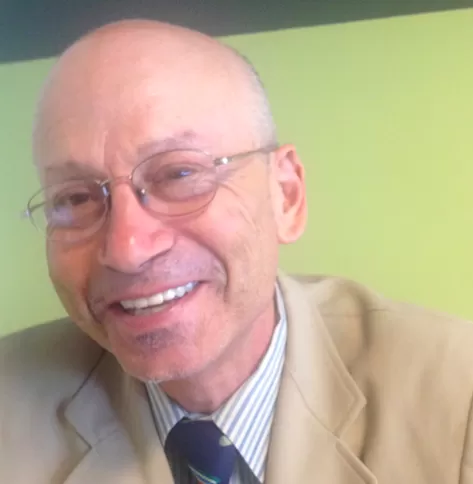Irvin Dawid discovered Planetizen when a classmate in an urban planning lab at San Jose State University shared it with him in 2003. When he left San Jose State that year, he took with him an interest in Planetizen, if not the master's degree in urban & regional planning.
As a long-time environmental activist, he formed the Sustainable Land Use committee for his local Sierra Club chapter and served six years on the Bay Area Air Quality Management District’s Advisory Council from 2002-2008. He maintains his interest in air quality by representing Sierra Club California on the Clean Air Dialogue, a working group of the Calif. Environmental Dialog representing business, regulatory and public health/environmental interests.
Major interests include transportation funding, e.g., gas taxes, vehicle miles traveled (VMT) fees, road tolls and energy subsidies that lead to unlevel playing fields for more sustainable choices.
He hails from Queens (Bayside) and Long Island (Great Neck); received an AAS in Fisheries & Wildlife Technology from SUNY Cobleskill and a B.S. from what is now Excelsior College.
After residing for three years on California’s North Coast, he’s lived on the San Francisco Peninsula since 1983, including 24 years in Palo Alto. Home is now near downtown Burlingame, a short bike-ride to the Caltrain station.
He’s been car-free since driving his 1972 Dodge Tradesman maxi-van, his means to exit Long Island in 1979, to the junkyard in 1988.
Major forms of transportation: A 1991 'citybike' and monthly Caltrain pass, zone 2-2. "It's no LIRR, but it may be the most bike friendly train in America."
Irvin can be reached at [email protected]
Can The U.S. Really Become Energy Independent?
The short answer is yes, according to this NPR report that includes interviews with energy experts. The boom in shale fracking for oil and natural gas and the zeal of small energy companies is to credit. But UC Berkeley's Don Kammen has his doubts.
What is Manhattan's Carrying Capacity?
NYT reporter Amy O'Leary observes Manhattan's ubiquitous construction while suffering through overcrowded sidewalks, stores, and subway trains, and wonders just how many more people the crowded borough can absorb.
Largest U.S. Municipal Bankruptcy Pending For Stockton
Stockton, a city of 300,000 in California's ailing Central Valley, may become the largest city in the U.S. to declare bankruptcy. Agreements with public employee unions and major bond creditors may be all that stand in the way of default.
Uncertainty Dominates House's Next Step in Transportation Reauthorization
The House is working to amend its transportation bill, but what takes its place is far from certain. Burgess Everett reports on speculation that the GOP is aiming to shorten the length to two years, and make a host of other changes.
What Is the Best Way to Improve Safety for Cyclists and Pedestrians?
In response to an eye-opening Atlantic Cities article about the lack of enforcement of traffic laws in NYC, especially as it contributes to pedestrian and cyclist injuries and deaths, four esteemed debaters offer opinions on how to improve safety.

























